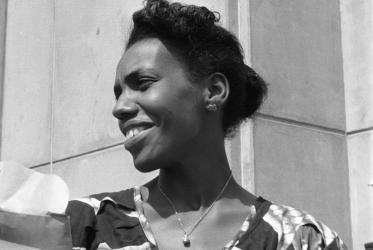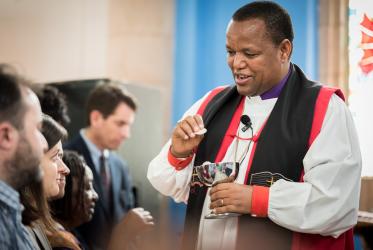Displaying 1 - 7 of 7
16 December 2019
A tribute to Rev. Dr Rena Joyce Weller Karefa-Smart
21 January 2019
Arusha offers vibrant and colourful worship life
12 March 2018
Konrad Raiser shares ecumenical journey of transformation
06 February 2018
Pilgrimage of justice and peace gives vision for WCC programmes
22 November 2014




